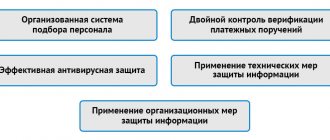ST 200.1 of the Criminal Code of the Russian Federation.
1. Illegal movement across the customs border of the Customs Union within the EurAsEC of cash and (or) monetary instruments, committed in a large amount, is punishable by a fine in the amount of three to ten times the amount of illegally moved cash and (or) the value of illegally moved cash instruments or in the amount of wages or other income of the convicted person for a period of up to two years, or by restriction of freedom for a period of up to two years, or by forced labor for a period of up to two years.
2. The act provided for in the first part of this article, committed: a) on an especially large scale; b) by a group of persons - is punishable by a fine in the amount of ten to fifteen times the amount of illegally moved cash and (or) the value of illegally moved monetary instruments, or in the amount of the wages or other income of the convicted person for a period of up to three years, or by restriction of freedom for a term of up to four years, or forced labor for up to four years.
Notes.
1. The act provided for by this article is recognized as committed on a large scale if the amount of illegally moved cash and (or) the value of illegally moved monetary instruments exceeds twice the amount of cash and (or) the value of traveler's checks permitted by the customs legislation of the Customs Union within the EurAsEC to movement without written declaration.
2. The act provided for by this article is recognized as committed on an especially large scale if the amount of illegally moved cash and (or) the value of illegally moved monetary instruments exceeds five times the amount of cash and (or) the value of traveler's checks permitted by the customs legislation of the Customs union within the EurAsEC to movement without written declaration.
3. When calculating the amount of illegally moved cash and (or) the cost of illegally moved monetary instruments, from the entire amount of illegally moved cash and (or) the value of illegally moved monetary instruments, the part that is subject to the customs legislation of the Customs Union within the EurAsEC allowed to move without declaration or was declared.
4. A person who voluntarily surrendered cash and (or) monetary instruments specified in this article is exempt from criminal liability unless his actions contain another crime. Their discovery during the application of customs control forms, their seizure during the detention of a person, as well as during investigative actions for their discovery and seizure cannot be recognized as voluntary surrender of cash and (or) monetary instruments specified in this article.
5. For the purposes of this article, monetary instruments are understood as traveler's checks, bills of exchange, checks (bank checks), as well as securities in documentary form, certifying the obligation of the issuer (debtor) to pay funds, which do not indicate the person to whom such payment is made .
Responsibility under the article
According to Art. 200 were assigned various preventive measures. If we talk about the first part, the following punishment was assumed:
- a fine of 100-200 minimum wages or wages for 1-2 months;
- compulsory work for a period of 180-240 hours;
- correctional labor for 1-2 years.
Part 2 of this article provided for the imposition of a more serious sanction, namely imprisonment for up to 2 years with a ban on holding certain types of positions for 3 years.
Attention! If the seller’s actions fall under the definition of “fraud,” then the preventive measures listed in Art. 159 of the Criminal Code of the Russian Federation. Punishment is chosen according to the part by which the act was classified.
Under Part 1, the following preventive measures may be imposed:
- a fine of 120,000 rubles or one year’s salary;
- compulsory work for 360 hours;
- corrective labor for a year;
- restriction of movement for 2 years;
- forced labor for the same period;
- arrest for a period of up to 4 months;
- imprisonment for 2 years.
If you have been deceived in a store, do not be afraid to stand up for your rights.
Let’s say the offense was committed by a whole group of people or caused significant damage to a person who came shopping. In this case, the court may order the following preventive measures:
- a fine of up to 300,000 rubles or wages for 2 years;
- compulsory work for 480 hours;
- correctional labor for 2 years;
- forced labor for 5 years with restriction of movement for a year;
- imprisonment in a colony for 5 years with the application of the said sanction.
If major damage was caused as a result of fraud, the judge chooses the following punishments:
- a fine of 100,000 - 500,000 rubles or the amount of wages for 1-3 years;
- forced labor for 5 years with restriction of movement for 2 years;
- imprisonment for 6 years with payment of a fine of 80,000 rubles or the amount of wages for 6 months and restriction of freedom for 1.5 years.
If it was carried out by a group of citizens and on a particularly large scale, then the citizen can be imprisoned for 10 years with a fine of one million rubles or wages for 3 years and restriction of movement for 2 years.
In what cases can you limit yourself to an administrative fine?
As noted earlier, in connection with the repeal of Art. 200 of the Criminal Code of the Russian Federation almost always applies Art. 14.7 Code of Administrative Offenses of the Russian Federation. It already provides for other preventive measures, based on the circumstances of the incident. Under Part 1 of this article, a fine is imposed in the amount of:
- 3,000 – 5,000 rubles for individuals;
- 10,000 – 30,000 rubles for officials;
- 20,000 – 50,000 rubles for legal entities.
According to Article 14.7 of the Code of Administrative Offenses of the Russian Federation, a fine is provided, but in different amounts for different categories of citizens.
If the offense was classified under Part 2 of this article, then the fine will have to be paid in different amounts for officials and legal entities, but it will remain the same amount for ordinary citizens. For the former it will reach from 12,000 to 20,000 rubles, and for the latter – from 100,000 to 500,000 rubles.
Punishment for smuggling money and monetary instruments
Alternative penalties for simple smuggling:
- a fine in the amount of 3 to 10 times the amount of money illegally moved across the border (or in the amount of the earnings of the guilty person for a period of up to 2 years);
- up to 24 months of restriction of freedom;
- up to 24 months of forced labor.
If we are talking about qualified trains, then the punishment is tougher. For example, the most severe sanction in this case is forced labor for up to 4 years.
Let's consider real cases of prosecution under Article 200.1 of the Criminal Code of the Russian Federation.
In 2021, at the Koltsovo airport in Yekaterinburg, a passenger on the Yekaterinburg-Tashkent flight illegally moved an amount equivalent to 35 thousand US dollars across the border of the Customs Union. The court found the man guilty of committing a crime under Part 1 of Article 200.1 of the Criminal Code of the Russian Federation and sentenced him to a fine of 100 thousand rubles. The illegally smuggled money was confiscated and turned into state income.
And one more example.
A resident of the Novgorod region, located at Pulkovo airport, intended to send more than 1 million 700 thousand rubles to the Republic of Azerbaijan without declaring this amount. The money was discovered during customs control. The Moskovsky District Court of St. Petersburg found the man guilty of cash smuggling and imposed a fine in the amount of his earnings for 2 months. Undeclared funds became the property of the Russian Federation.
Despite the fact that cash smuggling is a minor crime, it should not be underestimated. The fact is that a person found guilty of smuggling is guaranteed to lose the funds transported across the border: sometimes the bill amounts to millions of dollars. To avoid negative consequences in the form of a criminal record and loss of large sums of money, it is recommended to contact a competent criminal lawyer in a timely manner.
The corpus delicti provided for in Part 1 of Article 200.1 of the Criminal Code of the Russian Federation
- Object: social relations regulating the normal functioning of the sphere of foreign economic activity and customs control. Ensuring public safety can be considered as an additional object.
The subject of the crime is money and (or) monetary instruments. Cash includes banknotes, treasury notes and coins, and monetary instruments include traveler's checks, bills of exchange, bank checks, and securities in documentary form.
- Objective side: illegal transportation of funds and (or) instruments across the customs border of the Customs Union within the EurAsEC. A prerequisite for prosecution under Part 1 of Article 200.1 of the Criminal Code of the Russian Federation is the large size of the valuables being moved. According to the note to the article, we are talking about a large amount if the amount of money being moved is more than 2 times the amount of money allowed for transportation without declaration. From paragraph 7 of paragraph 1 of Article 260 of the EAEU Labor Code it follows that it is necessary to declare money and funds exceeding an amount equivalent to 10 thousand US dollars. It should be remembered that from the entire amount transported across the border, the amount not subject to declaration (or the declared amount) is deducted.
Movement is considered illegal:
- outside designated areas;
- with concealment from customs control;
- with no declaration of goods;
- using false documents.
The crime is considered completed from the moment of discovery of false information specified in the declaration, or from the moment of suppression of actions aimed at the export of money or monetary instruments.
- Subject: a sane individual over 16 years of age.
- Subjective side: guilt in the form of direct intent.
Criminal liability increases in the presence of the following aggravating circumstances:
- smuggling on an especially large scale (the amount transported is 5 or more times the amount that can be moved across the border without declaration);
- committing an act as part of a group of subjects.
Please note: if a citizen carried a smaller amount, he may be brought to administrative liability under Article 16.4 of the Code of Administrative Offenses of the Russian Federation. If the illegally smuggled amount is relatively small, the person may be released from administrative liability due to the insignificance of the act.
A citizen can be released from criminal liability under Article 200.1 of the Criminal Code of the Russian Federation if he voluntarily surrenders illegally smuggled money (monetary instruments), provided that his actions do not contain signs of other crimes. If the money was forcibly confiscated, then there can be no question of release from liability.
Composition of the crime under the article
The object of this offense was social relations that ensure interests in the economic sphere, as well as property interests for buyers.
The objective side was defined as any type of consumer deception during shopping.
The subject of this offense was any goods or funds.
The subject of the offense is money or goods.
The subject was defined as a capable citizen who had reached the age of 16. How can one deduce from Art. 200 of the Criminal Code of the Russian Federation, usually it became the seller himself or the individual entrepreneur for whom the activity was registered. If these persons were not officially registered, then we are talking about another crime, namely fraud.
The subjective side was recognized as guilt in the form of direct intent.





